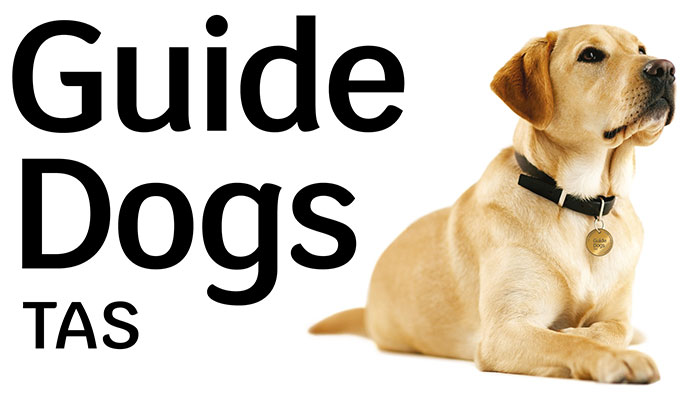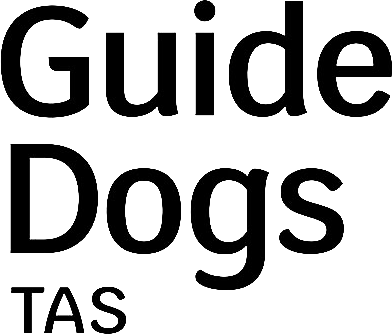These life-changing dogs offer independence, mobility, safety and friendship to those who need it most. We are the only organisation to raise and train Guide Dogs and Autism Assistance Dogs right here in the state, with local instructors available to provide ongoing support and aftercare. We are proudly Tasmanian, and support local businesses wherever we can. Guide Dogs Tasmania is owned and operated by The EverAbility Group
Membership
Guide Dogs Tasmania is a member of the International Guide Dog Federation.
Sean Cromwell – Independence
Our Puppies Journey
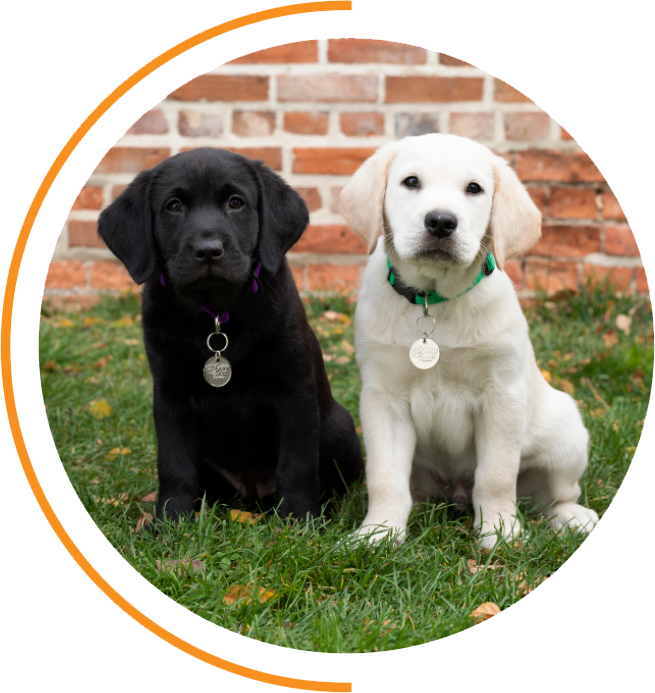
1
New Arrivals
Young recruits are specially bred and must be confident, responsive and healthy.
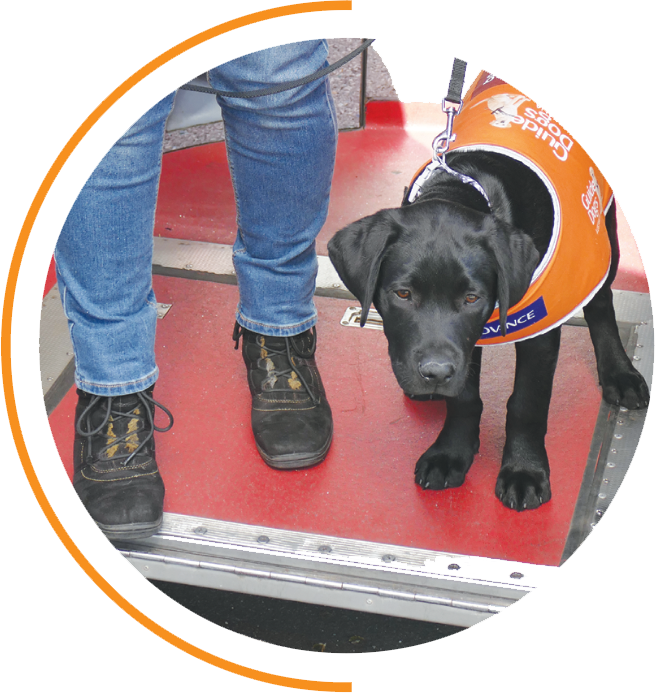
2
Puppy Raising
At 8-10 weeks, puppies move in with their Puppy Raisers and go everywhere they do – to shops, cafes and on public transport – to help them become well-socialised and comfortable with the world around them.
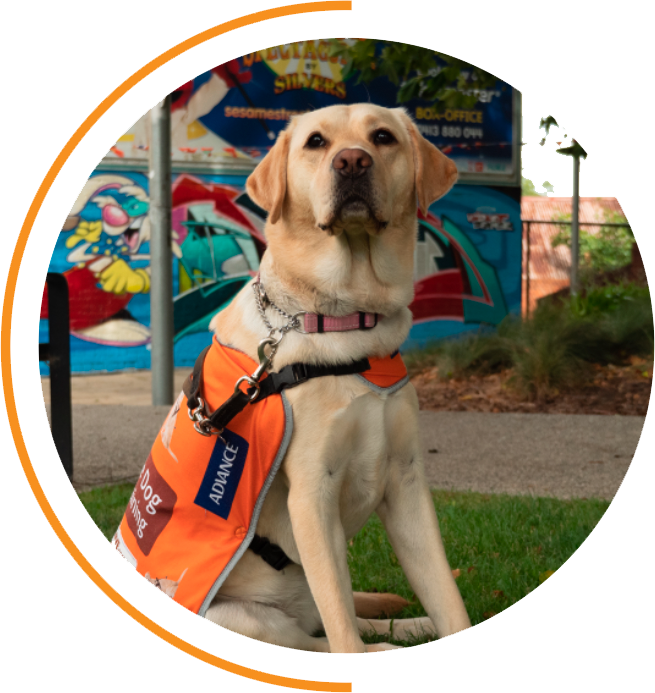
3
Formal Training
At 18 months of age, they’ll begin formal training to learn important commands and guiding techniques such as avoiding obstacles, stopping at kerbs and finding seats.
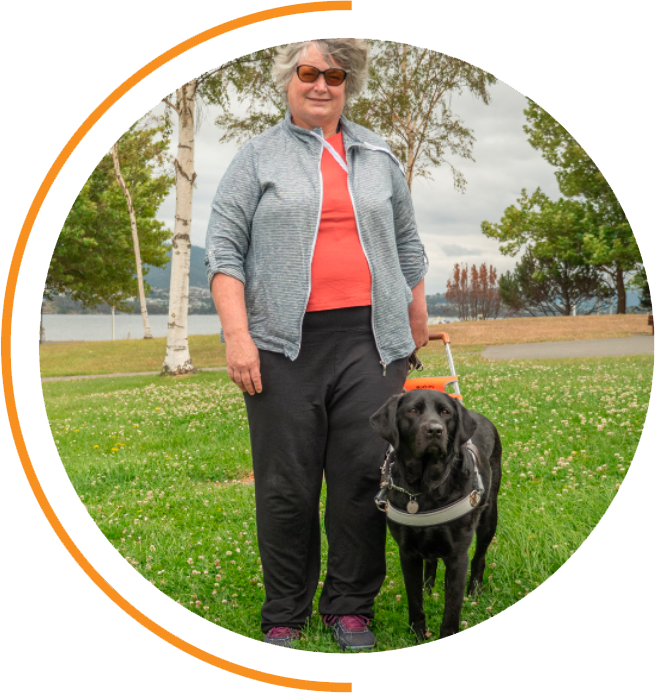
4
A Perfect Match
At around 2 years old, when they’ve passed their assessment, our puppies graduate. They’re then carefully matched with someone whose lifestyle, needs and personality they complement well.
Our History
In 1957 it was resolved at the Scottsdale Zone Convention that Apex would initiate the formation of a Guide Dogs for the Blind Association in Tasmania, and a sub-committee was appointed for this purpose. This committee didn’t wait for the official body to be formed before sponsoring the recipient of the first guide dog in Tasmania.
George Grainger, Chief Telephonist with the Hydro-Electric Commission in Hobart, had trained with a Guide Dog at the Exeter Training Centre in England but had been unable to bring his canine friend with him when he emigrated to Australia. A successful public appeal was launched and Mr Grainger was sent to Perth for retraining and 4 weeks later, in April 1958, he returned with Rumpus, Tasmania’s first Guide Dog.
On 30 July 1958 the Lord Mayor of Hobart, Sir Archibald Park, called a public meeting in the Town Hall at which it was decided to form Guide Dogs for the Blind Association of Tasmania, and a formation committee was elected.
In 1960 a northern regional committee was formed in Launceston with the backing of Apex, and in 1974 this committee alone raised $10,000. The committee became the forerunner of many auxiliaries established throughout the State, who existed to raise funds for the Association. Also in 1960 the Governor of Tasmania accepted patronage of the Association, and around this time the Attorney General also approved the use of the prefix “Royal”, and thus the Tasmanian branch became the only individual member of the Guide Dogs.
Associations to be so honoured. The Tasmanian Governor of the day traditionally accepts the position of Patron.
A Guide Dog Act, prepared by the then Minister for Health, The Hon. MG Everett QC was approved by parliament in 1967.
In 1987 we acquired office accommodation in Launceston and Devonport, and we purchased the Hobart office in 1988.
In 1987 Royal Guide Dogs took over the operations of The Lord Fraser Home for the Aged Blind in North Hobart, from the Royal Society for the Blind and Deaf, and 8 years later purchased the Crown Title to the Home from the State Government. Guide Dogs ran this facility until it was sold to the Friends School in 1996 for around $700,000 transferring its bed licences, staff and residents to the Queen Victoria Home Inc.
The Devonport office property was sold in 1995, and the Risby Street property in Ulverstone was purchased for the purposes of running a more central North-West Low Vision Clinic and fundraising depot. The Lions Club provided the equipment for the Low Vision Clinic and took an active role in promoting it. This property was sold in the mid 2000s.
We are proud of our history and excited by the future.
Sign up to keep up-to-date
Alibus, ad experci endenihil magnatust mo dolore consent aut mos nonsece rchilia spitatur aut qui tecus
